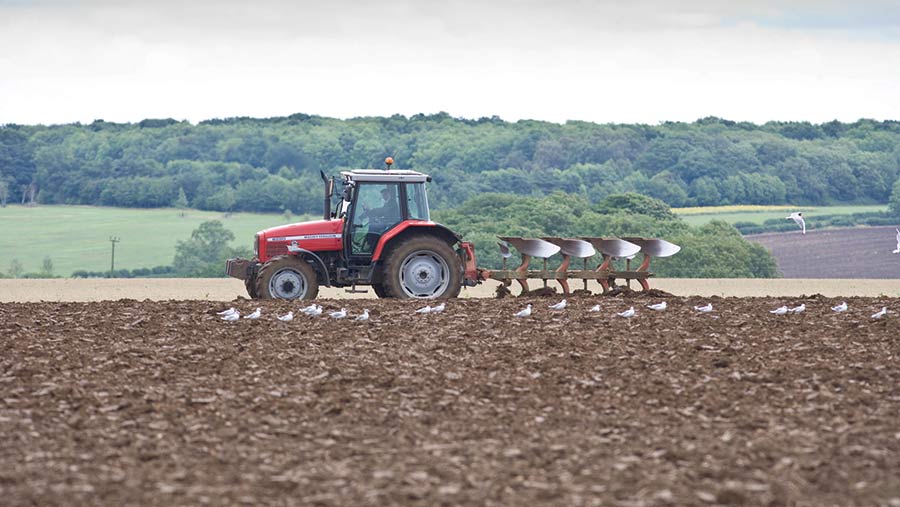Opinion: Soils, not vested interests, should be focus of tenancy debate
 ©Tim Scrivener
©Tim Scrivener The current debate on the length of Farm Business Tenancies is producing understandable arguments from both landowners and those who farm land as tenants.
Why would an owner not want to maintain flexibility and the ability to change the occupier through short-term agreements?
Insecurity can lead an occupier of land to pay the highest rent necessary in order to continue in occupation, while longer-term security of tenure shifts the balance of power.
And why should the owners of land not get a full market rent for it?
After all, it is just another asset class that continues to attract new investors.
The inheritance taxation benefits, designed for farming families to pass the farm to the next generation without crippling tax consequences, have proved very attractive to wealthy individuals, while corporate investors have used land as a commodity to trade.
But the truth is, that the debate on land tenure has failed to focus on that which is more important than vested interests – the long-term stewardship of the soil that will allow farmers to deliver sustainable and cost-effective food production.
If landowners do not take direct responsibility for the custodianship and farming of their land, those who do must be able to manage the land with the long term in mind and not be forced to farm for short-term gain to pay the rent.
“Short-term tenancies are threatening the long-term health of our land, which leads to short- term profit taking where the soil’s nutrients and organic matter are depleted and thereby the inherent value of the land reduced”
Short-term tenancies are threatening the long-term health of our land, which leads to short- term profit taking where the soil’s nutrients and organic matter are depleted and thereby the inherent value of the land reduced.
If drainage systems are not properly managed and replaced, the soil structure is depleted.
Land drainage has been largely ignored because of its expense and inconvenience, for too long.
Larger machinery is making land drainage very necessary.
It is good to see a lot more drainage being done in Lincolnshire and Nottinghamshire currently. This is wise investment.
Farming in the postwar years has sought to ever-increase yields by using larger, more efficient, mechanisation, nitrogen fertilisers and agrochemicals, while traditional farming practices have been sidelined due to the constant demand to produce greater returns.
But the cost to our soils has not been factored in to the calculations or properly analysed.
Most arable farms have an agronomist who constantly monitors their crops – but how many farmers really take note of their soil structure rather than simply relying on the latest piece of machinery to deliver a seed-bed?
Those who are the custodians of this vital national resource need to better understand the implications of their decisions for future generations, while prospective tenants have their part to play too – they must demonstrate to landowners why they are better placed as long-term custodians by sharing soil management plans.
There is very good reason to allow younger people to farm and occupy land with the prospect of security and reward for their labour – they are going to be managing for the long-term.
The pendulum swung in favour of the free market with the introduction of Farm Business Tenancies under the Agricultural Tenancies Act 1995.
But those who trade in land have no long-term vested interest in carefully managing this precious resource. That will come at a very considerable cost in the years ahead.
The land profession too has a real responsibility to promote and evaluate the benefit of quality soil management.
The structure of the soil and how it is managed should be properly factored in to the valuation of land for rent or sale.
The soils of our green and pleasant land are a vital national resource which must be managed for the nation with long term security and sustainability in mind.
So, the question that should be addressed is not: “What is best for landowners or occupiers?”, but critically: “What is best for the long-term health of our soils?”
It is time for all of us involved in this debate to consider arguments from a different standpoint. Feed the soil and it will feed you.

